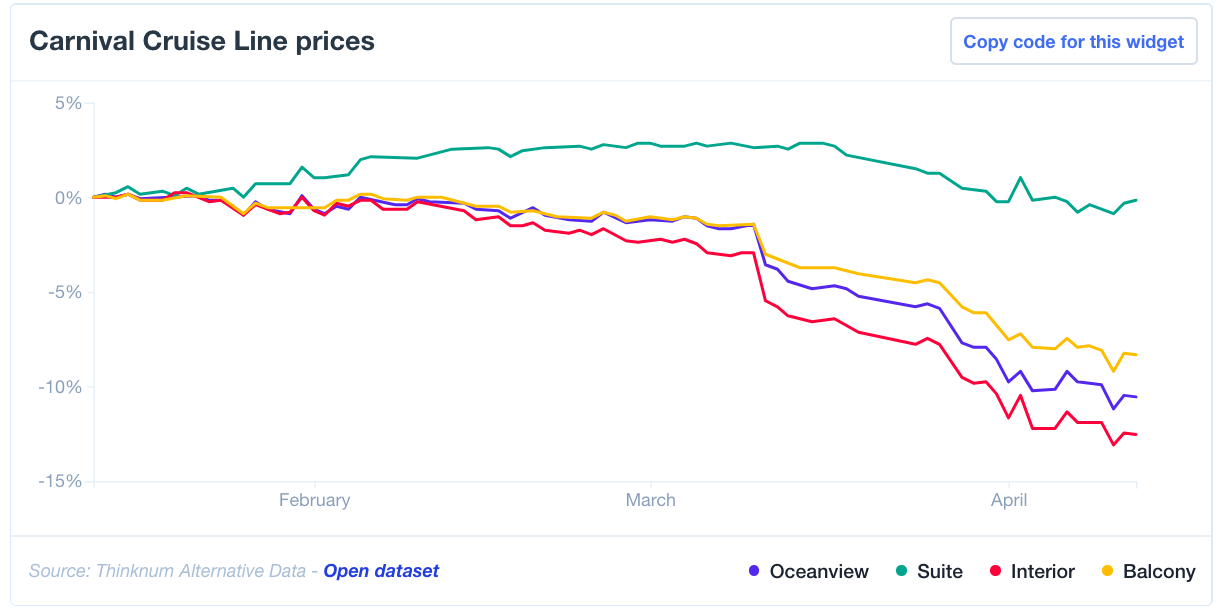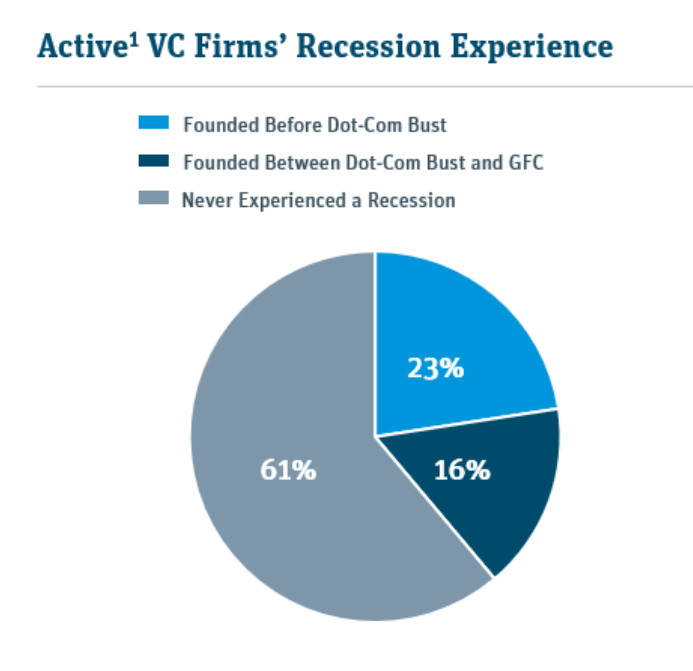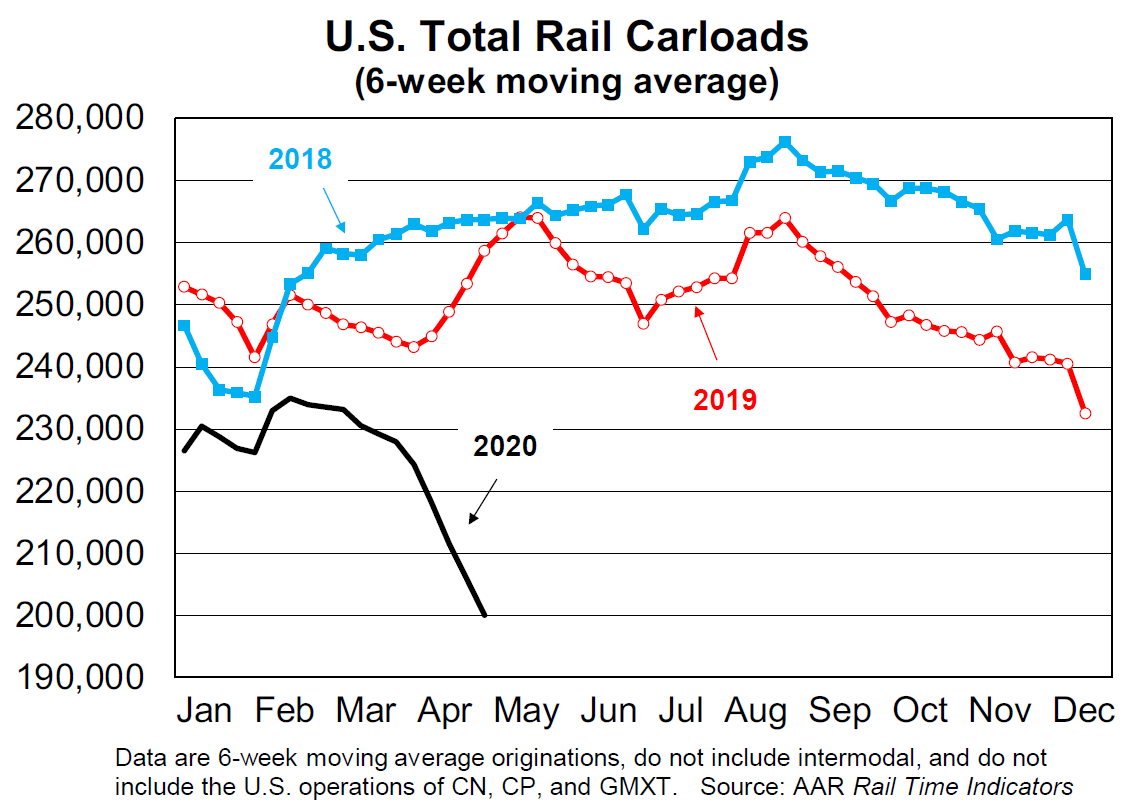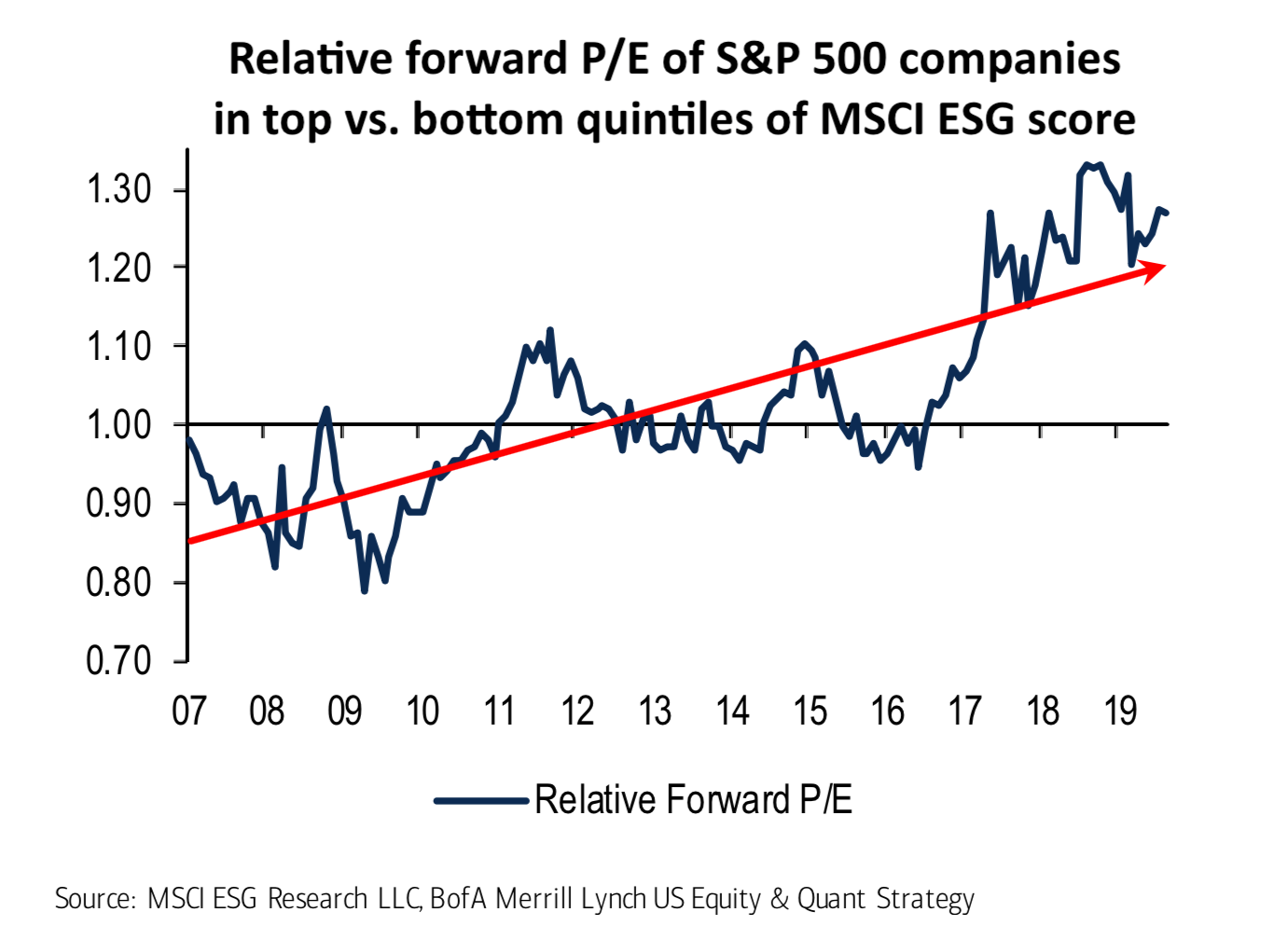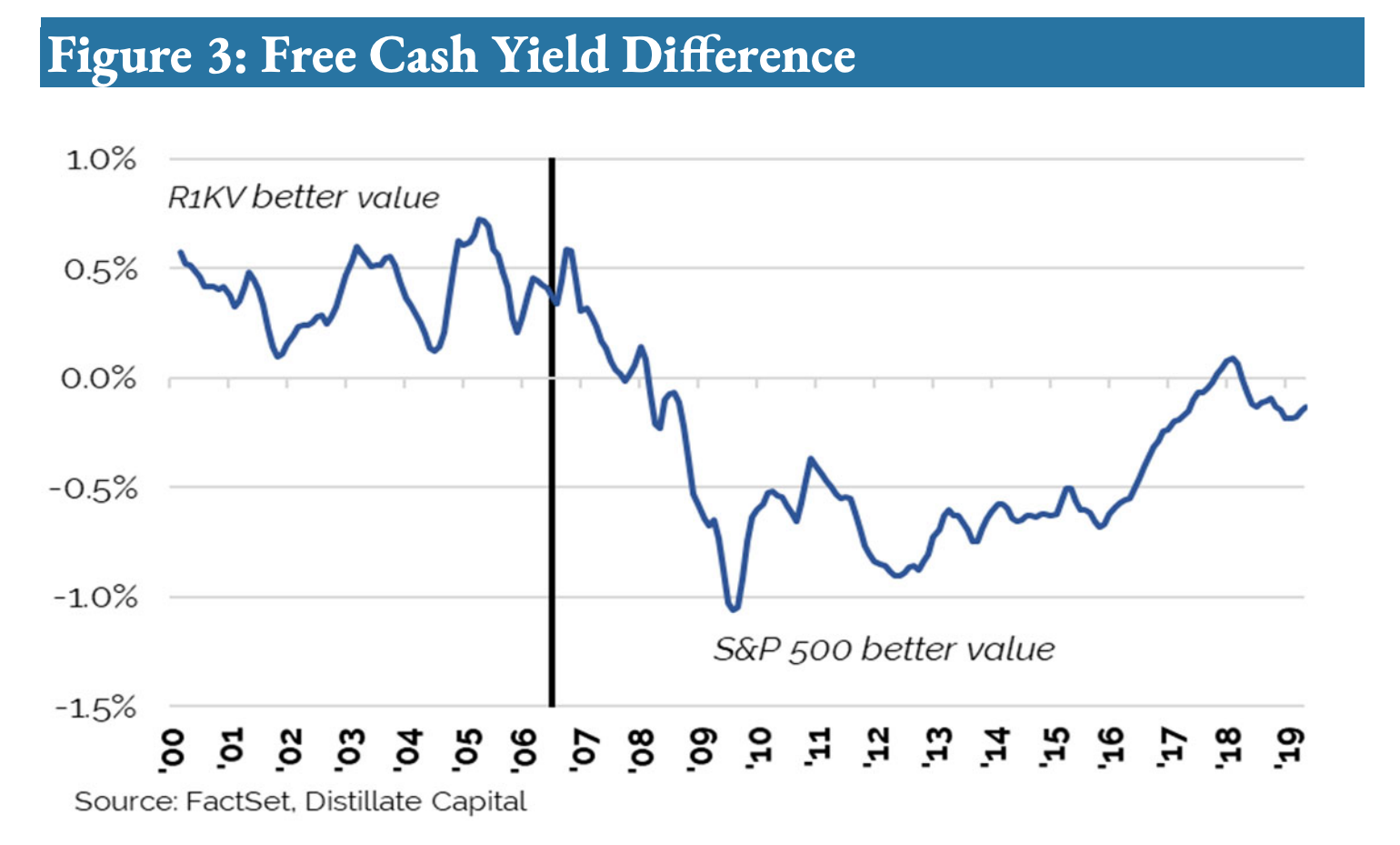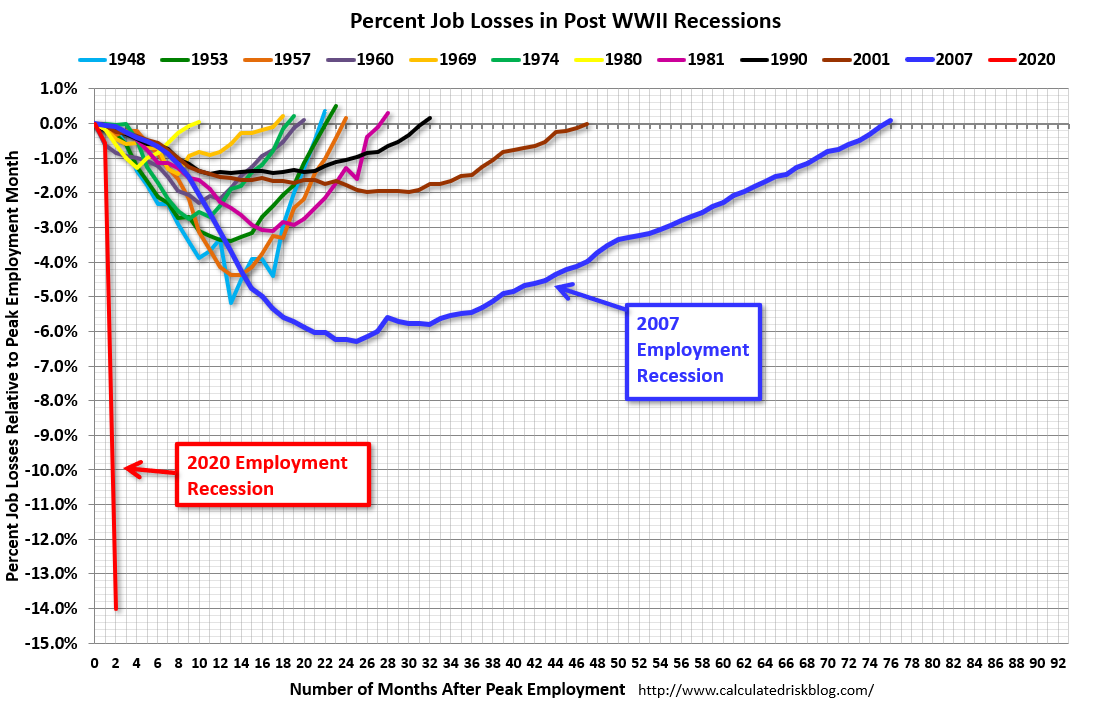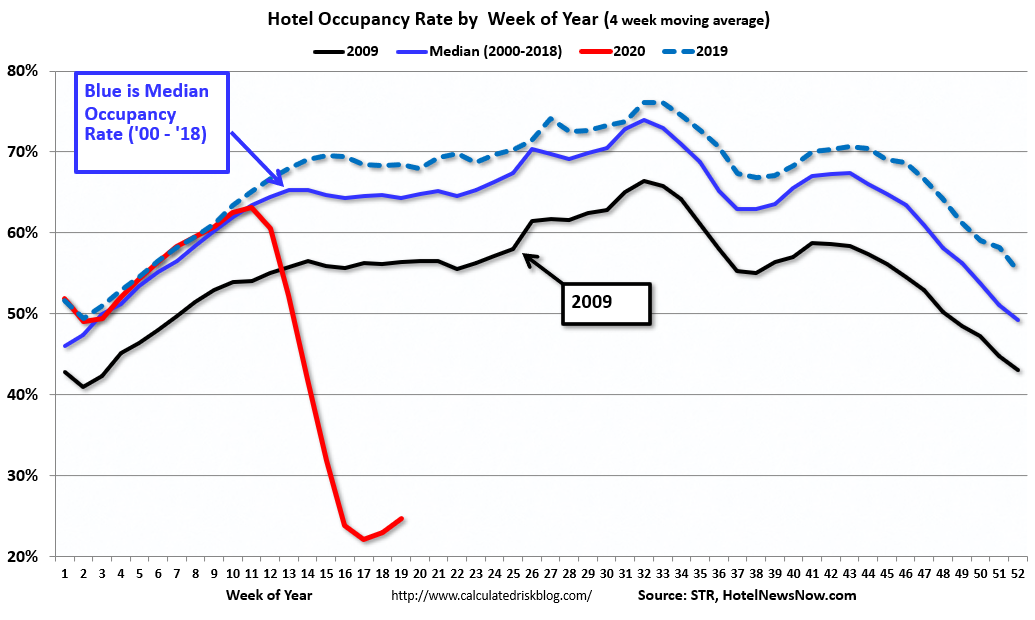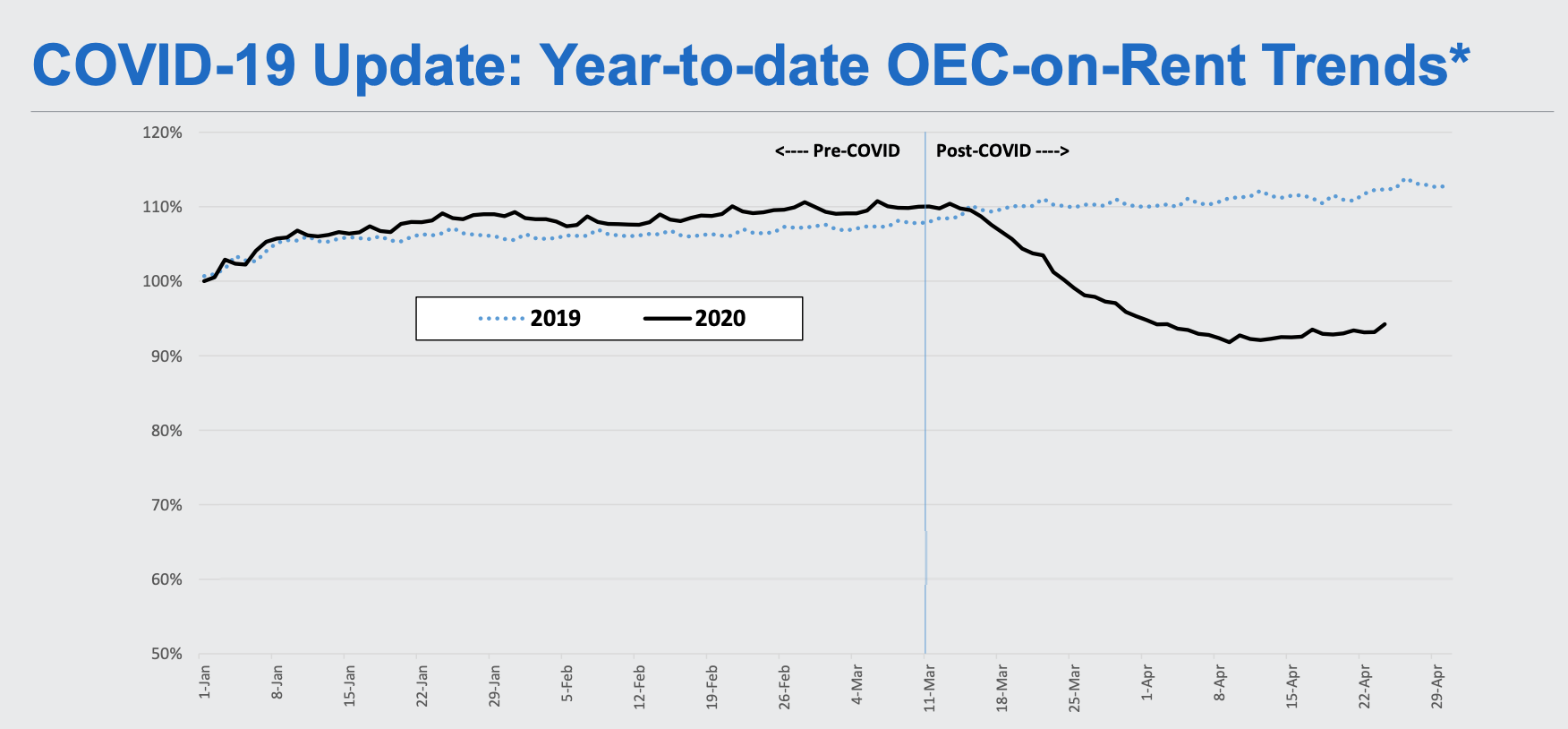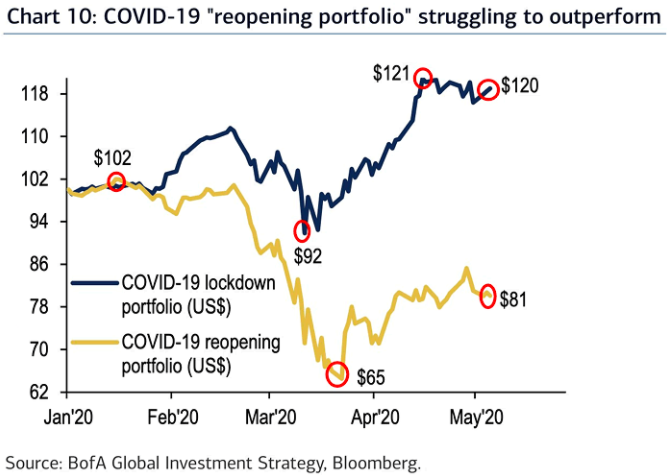Skip to content
People can’t wait to get back to cruising . They are likely attracted by falling pricing (pictured for Carnival (CCL)) – which look to be stabilising. Both Royal Carribbean (RCL) and CCL have raised extra funding so should survive until cruising restarts likely later this summer.
Experience matters in venture capital . Venture capital funds who were founded before the dot-com bust had a much lower variation in performance during the financial crisis of 2009. Worryingly, the majority (61%) of today’s crop of VCs have never seen a recession or economic trouble.
A really great commencement address (h/t Farnam Street) Part of a series commissioned by the Atlantic for students missing their’s due to the pandemic. It describes “the theory of maximum taste” On the topic of commencement addresses, this is a brilliant one from J.K. Rowling given to the Harvard class of 2008. A must see.
A staggering decline in rail traffic . April saw -25%, a record. “Any industry that’s been around for 190 years has experienced a lot, but railroads have never faced something quite like what they’re facing now “.
Interesting chart showing the relative valuation of stocks with a high environmental, social and governance (ESG) score. Although the chart is to mid-2019 this trend is likely to continue after the Covid19 related market gyrations are over.
In investing one mostly hears from the CEO, CFO, and investor relations. It is important to dig deeper. One vital function is the Chief Technology Office (CTO). Here for example is an excellent post from the outgoing CTO of New York Times. The legal department is also interesting. Here is a fascinating podcast featuring the general counsel of Netflix. Incidentally also the first lawyer hired by the company when they were still sending DVDs and who now heads up a team of 650 people.
Interesting chart that suggests that the underperformance of value investing since 2006 is down to valuation. The reason is that the valuation metric to look at is free cash flow yield to enterprise yield and not P/B or P/E. On this metric the Russel Value Index has been expensive since 2007. This is partly because in 1985 68% of the market value of the S&P 500 was tangible assets, today that number is 16%.
13-Fs are a required filing by fund managers. Despite their delayed publication, 13-Fs have interesting information on what some of the world’s successful funds have been doing on the long side. Here is a link to all the activity from the “unprecedented” Q1 2020.
An interesting piece from Paul Tudor Jones on inflation, gold and bitcoin (explaining his latest investment in the latter). This is an interesting chart from the piece showing Gold above ground against M1 money supply.
Really fun blog post where a blogger went through Companies House to find autographs of famous people signing corporate documents. Here is Sean Connery. For more check out the link.
This is a great article explaining why you should be very careful when investing in commodity ETFs. For a more in-depth analysis of the most recent action in USO specifically worth reading the last few articles in FT Alphaville’s ETF series . Always use common sense when investing money – read the fine print.
Mastercard have updated spending data for the week ending May 7th. Pictured are cross-border volumes. Card not-present (i.e. physically) non-travel continues to grow strongly. Card present growth has bottomed and seeing a bit of improvement due to intra-Europe travel. Looking within borders. US Switched volumes are now -6% YoY from mid -20%s in April. Rest of world also seeing a bit of improvement from -33% at worst point to -19% now.
This is a great chart from Calculated Risk blog . It shows job losses as a percent from the start of an employment recession. Goes without saying what we are seeing now stands out.
This is a great set of newsletters put together by the students at Columbia Business School. It usually has two interviews with established fund managers with insights into investment styles and approaches. Also includes plenty of investment ideas. The latest issue is here .
Not a lot of people know this $86bn Canadian company. This article is a brilliant way to describe Shopify’s approach using the analogy of popular strategy computer game StarCraft.
Some tiny green-shoots . STR data for 26 April through 2 May 2020 showed slightly higher U.S. hotel occupancy compared with previous weeks. The black line in the chart is 2009 – the worst year for hotels since the Great Depression. “Week-to-week comparisons showed a third consecutive increase in room demand, which provides further hope that early-April was the performance bottom,” TSA (Transport Security Administration) numbers have indeed ticked up and are at the highest level since March 30th. “At the same time, this past week was the first to show solid evidence of leisure demand as weekend occupancy grew in states that have significantly eased mitigation efforts.” h/t Calculated Risk .
United Rentals , the equipment rental business, is a company worth watching as they are very early cycle. This is an interesting chart from their results . It shows that “OEC on rent” – volume of fleet rented at original equipment cost. This metric fell in March but has been stable the last several weeks.
Interesting chart from BofA. It shows the relative performance of the “reopening” portfolio vs. the lockdown portfolio. You can imagine what stocks make up each portfolio. Interesting to see “reopening” struggling despite some of the green-shoots here .
Always worth keeping an eye on Bank of England publications. This is a great set of charts from the latest Monetary Policy Report . They show high-frequency data on what is going on in the UK economy in March. Will be interesting to see how these evolve going forward.
WordPress Cookie Notice by Real Cookie Banner


